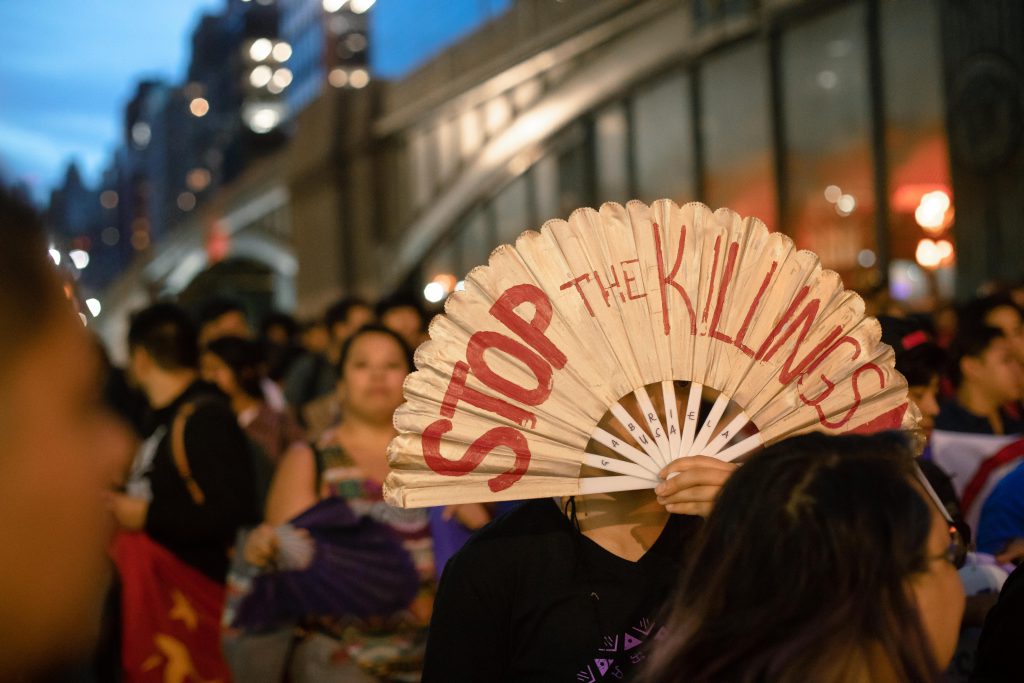BAYAN USA denounces the Philippines being awarded a seat in the United Nations Human Rights Council (HRC) on October 13, 2018 in Geneva. How can the Philippines, with an internationally notorious track record of human rights violations, especially now with President Duterte’s deadly “drug war” reaching beyond 20,000 killings, be part of the UN body “responsible for the promotion and protection of all human rights around the globe”?
The Philippine government’s response to this decision is a sure-tell sign that they will use this position in the UN HRC as a shield against further criticisms raised not only by human rights advocates but even other UN officials. In the statement, they also claim that this UN recognition is affirming the “Philippine government’s campaign against illegal drugs, corruption and criminality” as its “brand of human rights advocacy.” We reject this statement because it would be affirming that extrajudicial killings is the correct solution to solving the drug problem in the Philippines and that allowing the Philippine National Police (PNP) to murder civilians who have yet to be proven guilty of any crime is ok. By allowing such statements to go unchallenged and granting the Philippines the seat to the UN HRC, the UN seems to be invalidating itself as an international body that upholds humanitarian law and human rights conventions.
President Duterte has fueled the case against him by recently admitting that “his only sin is the extrajudicial killing” despite his administration vigorously denying said EJKs when criticized by human rights advocates. When UN officials visited the Philippines, Duterte openly threatened UN Special Rapporteur for Extrajudicial Killings Agnes Callamard and former UN High Commissioner for Human Rights Prince Zeid bin Ra’ad Zeid al-Hussein, saying they should be fed to the crocodiles. Duterte also threatened to add “foreigners as human targets for Filipino soldiers,” as a response to the International People’s Tribunal (IPT) verdict finding the US-Duterte administration guilty of crimes against humanity over the “gross and systematic violations of human rights” in the Philippines. The mere fact that President Duterte withdrew the Philippines from the International Criminal Court (ICC) after a preliminary examination was to be done following the “accusation that the president and top officials had committed crimes against humanity during the deadly war on drugs,” proves that Duterte and his administration will not cooperate in any investigation into human rights violations in the Philippines–the very task the HRC is responsible for doing.
Though these can be merely seen as “threats” and written off by his spokespersons who say “to not take him seriously,” the rising number of extrajudicial killings in the Philippines should be all the proof needed for the UN and any international body to see that President Duterte as a representative of the Philippines is not only unfit to sit on the UN Human Rights Council, but instead should be further investigated for crimes against humanity.
Nonetheless, it is the Filipino people, not the UNHRC, that is decisive in where Rodrigo Duterte stands as far as human rights, and will hold him accountable.
###
